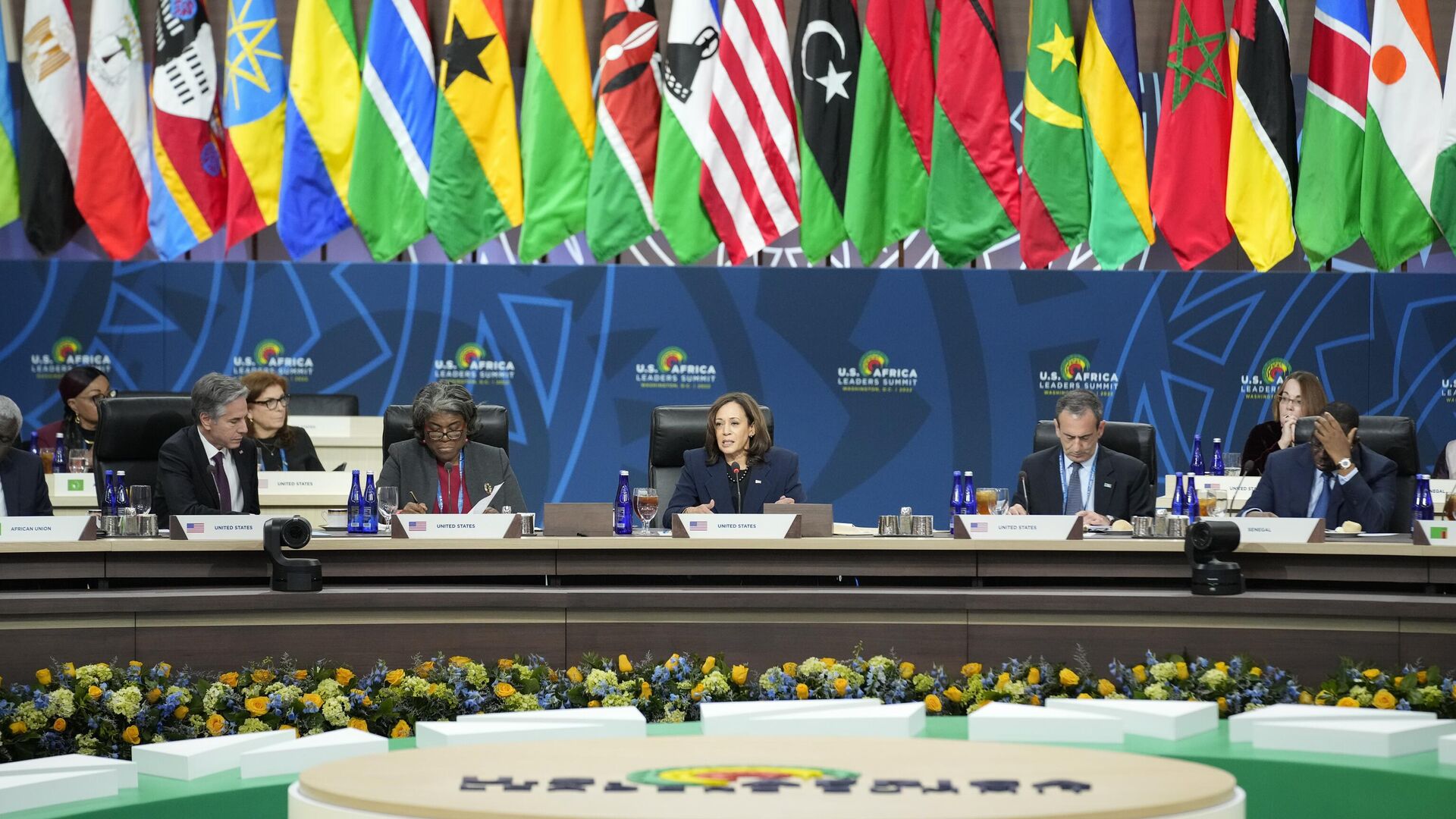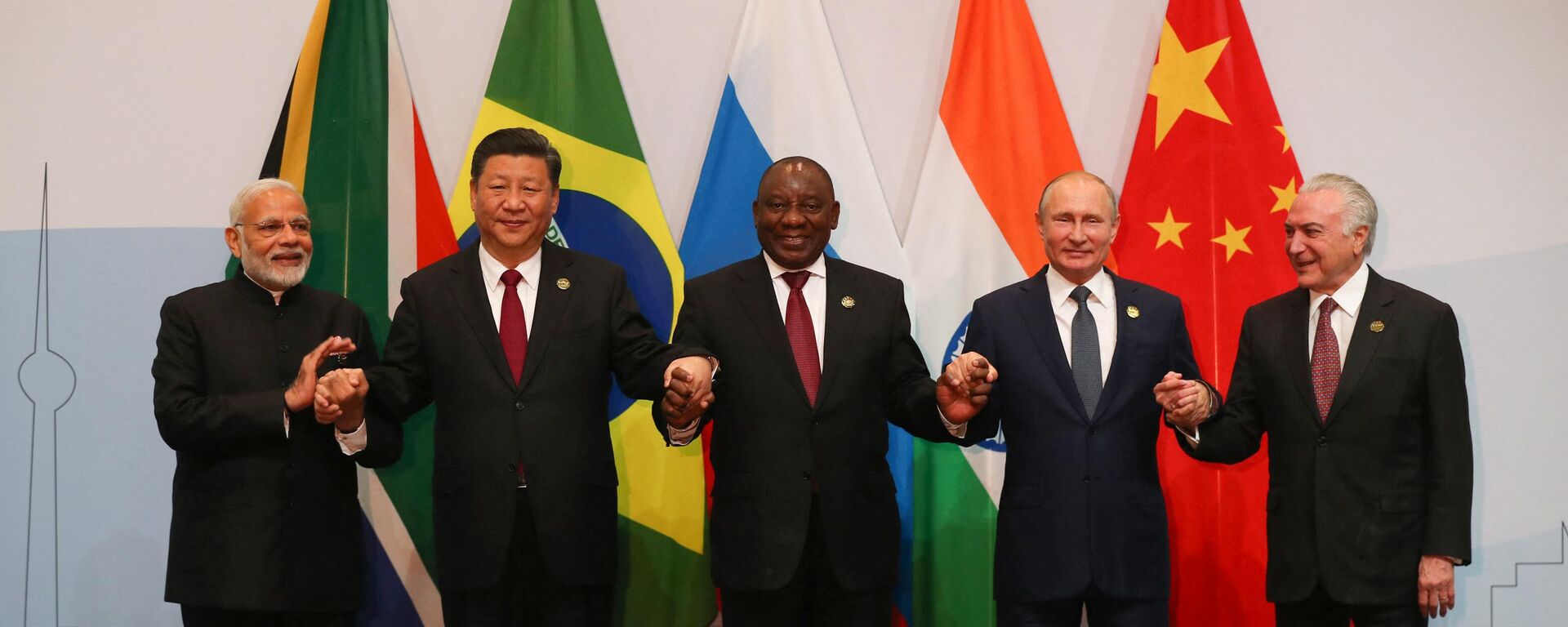https://en.sputniknews.africa/20230420/off-record-pressure-expert-on-how-west-holds-africas-funding-by-strings--1058733943.html
Off-Record Pressure: Expert on How West Holds Africa's Funding by Strings
Off-Record Pressure: Expert on How West Holds Africa's Funding by Strings
Sputnik Africa
The financial relations between African countries and the West are "exploitative in nature," said Dr. Anne Abaho, in an interview with Sputnik.
2023-04-20T18:05+0200
2023-04-20T18:05+0200
2023-04-20T18:15+0200
opinion
international monetary fund (imf)
world bank
china
russia
african development bank (afdb)
africa insight
https://cdn1.img.sputniknews.africa/img/07e7/04/14/1058734600_0:160:3072:1888_1920x0_80_0_0_04545e36d9ba57144e54ca21f3c09f9c.jpg
The financial relations between African countries and the West are "exploitative in nature" as they aim at dwindling away the continent's resources for the benefit of the world's leading states, said Dr. Anne Abaho, international relations and security studies lecturer at Nkumba University, Uganda, in an interview with Sputnik. According to Abaho, the African states have no other option but to follow the conditions of the West in order to receive much-needed financial support. In return, the "superpowers" are allowed to exploit African resources as part of the approach called "you help me, I help you out as well."She dubbed this kind of relationship between the developing and developed countries manipulative and exploitative, noting that it in particular, it prevents Africa from using its own riches on its development path.Abaho further elaborated that the internal problems in African nations, including political instability, are largely seen by Western states as an opportunity to penetrate and "feed their own baskets" under the pretext of resolving the issues or conflicts.She also recalled that this is how the lending mechanism within the IMF and World Bank works, explaining that a country won't get financing if it doesn't introduce important changes to its political and economic system, including a shift to democratic politics, a change in governance, and constitutional reviews. How Africa Can Get Off the Western Funding HookThe world needs a feasible alternative to the current financial international system dominated by the West and its institutions, Abaho highlighted. She noted that great opportunities lie in the area of expanding regional integration. According to her, if African countries manage to stabilize politically and deepen their regional ties, they will be able to defend their interests in the international arena for the sake of their people.In particular, she stated that the nations could work out legal frameworks to protect Africans in terms "of exchange of labor and respect for these laborers within the international economic system." She also noted that Russia and China, as well as some other other leading developing nations, could be alternatives to the West. She said that the most important conditions for African nations in pursuing new partnerships should be "fairness, transparency, and accountability." In this regard, Abaho praised the BRICS group for its "fair" approach to international relations and trade. She noted that the organization may not be strong enough "to be able to break from the exploitative system of the Western European countries," but it still represents a good example of partnership based on respect and mutual interests.
https://en.sputniknews.africa/20230414/twilight-of-the-idols-how-will-brics-eclipse-the-west-1058591804.html
china
russia
Sputnik Africa
feedback@sputniknews.com
+74956456601
MIA „Rossiya Segodnya“
2023
News
en_EN
Sputnik Africa
feedback@sputniknews.com
+74956456601
MIA „Rossiya Segodnya“
Sputnik Africa
feedback@sputniknews.com
+74956456601
MIA „Rossiya Segodnya“
africa, west, pressure, international financial system, imf, world bank
africa, west, pressure, international financial system, imf, world bank
Off-Record Pressure: Expert on How West Holds Africa's Funding by Strings
18:05 20.04.2023 (Updated: 18:15 20.04.2023) African nations have repeatedly criticized the West for putting unprecedented pressure on developing countries, noting that the "unfair" international financial system neglects their needs and dictates conditions that contradict their interests.
The financial relations between African countries and the West are "exploitative in nature" as they aim at dwindling away the continent's resources for the benefit of the world's leading states, said Dr. Anne Abaho, international relations and security studies lecturer at Nkumba University, Uganda, in an interview with Sputnik.
According to Abaho, the African states have no other option but to follow the conditions of the West in order to receive much-needed financial support. In return, the "superpowers" are allowed to exploit African resources as part of the approach called "you help me, I help you out as well."
She dubbed this kind of relationship between the developing and developed countries manipulative and exploitative, noting that it in particular, it prevents Africa from using its own riches on its development path.
"Because of this exploitative nature, based on resources, based on geopolitical environment where we are, sub-Saharan Africa, particularly, is poor with a huge growing population, but with a rotten political system that is not fair in terms of allocation and management of resources," she explained.
Abaho further elaborated that the internal problems in African nations, including political instability, are largely seen by Western states as an opportunity to
penetrate and "feed their own baskets" under the pretext of resolving the issues or conflicts.
Talking about the pressure the West exerts on Africa to make it choose sides or follow the path it imposes, she underlined that even though the developed world would never accept this fact, the pressure is evident. She explained it comes in the form of sanctions, cuts of foreign aid, reductions in trade, tightened quotas, and higher tariffs on goods and other restrictions.
She also recalled that this is how the lending mechanism within the IMF and World Bank works, explaining that a country won't get financing if it doesn't introduce important changes to its political and economic system, including a shift to democratic politics, a change in governance, and constitutional reviews.
"[The] IMF and World Bank will not give you money where the superpowers have not agreed to give you money. And if they must give you money, then you must dance to the tune of revising the constitutions and time limits and democracy and minority rights, among the others," the expert underlined.
How Africa Can Get Off the Western Funding Hook
The world needs a feasible alternative to the current financial international system dominated by the West and its institutions, Abaho highlighted. She noted that great opportunities lie in the area of expanding regional integration.
According to her, if African countries manage to stabilize politically and deepen their regional ties, they will be able to defend their interests in the international arena for the sake of their people.
In particular, she stated that the nations could work out legal frameworks to protect Africans in terms "of exchange of labor and respect for these laborers within the international economic system."
She also noted that
Russia and
China, as well as some other other leading developing nations, could be alternatives to the West. She said that the most important conditions for African nations in pursuing new partnerships should be "fairness, transparency, and accountability."
In this regard, Abaho praised the
BRICS group for its "fair" approach to international relations and trade. She noted that the organization may not be strong enough "to be able to break from the exploitative system of the Western European countries," but it still represents a good example of partnership based on respect and mutual interests.
"It is important that these BRICS [nations] look into equality within the international trading system, they look at the financial exchange system to move away from the dollar because most economies cannot stand against the strength of the dollar," Abaho said.


